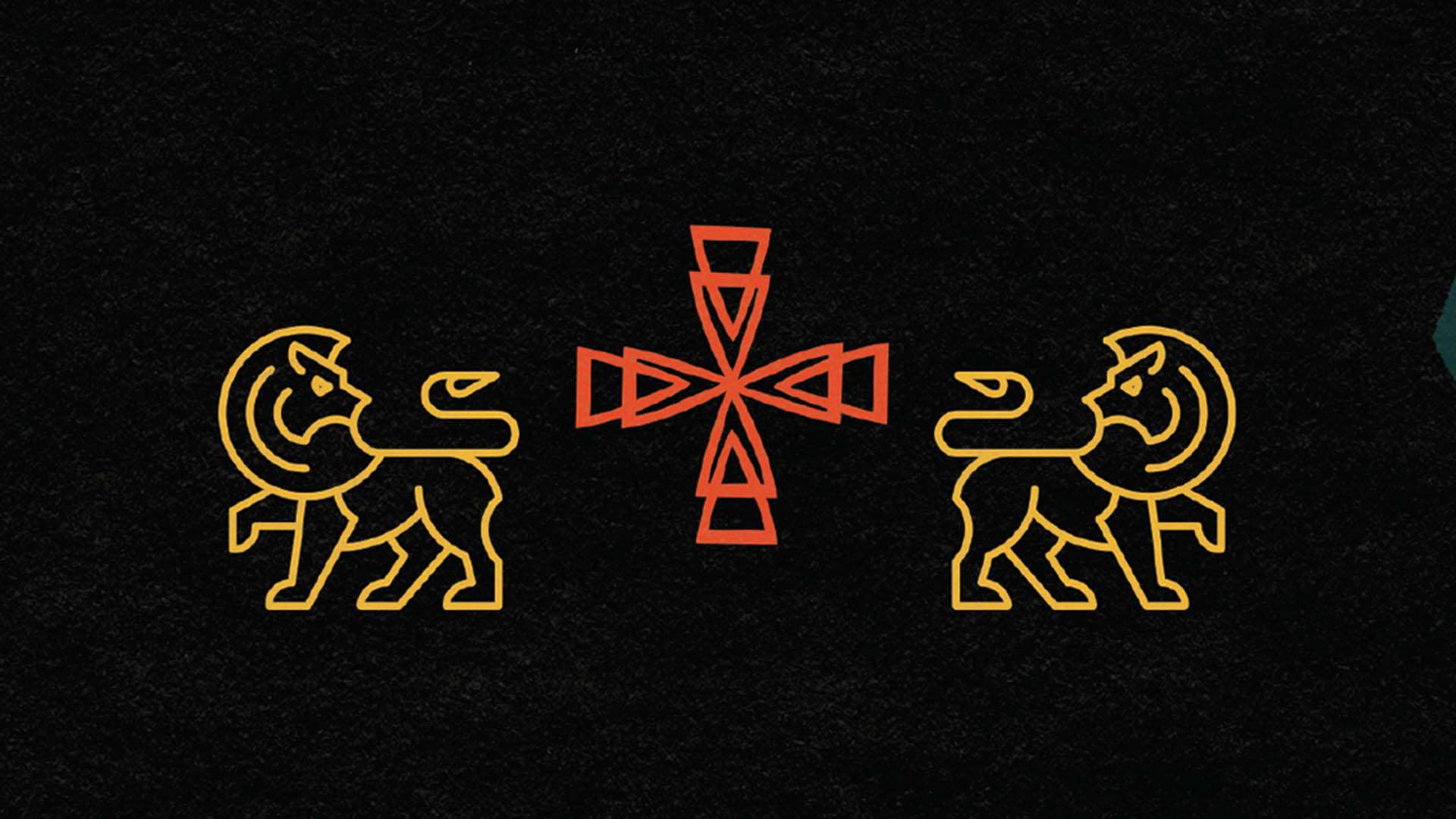“The whole creation is longing and waiting to be delivered from some kind of slavery, and that … deliverance will only occur when we, we Christians, fully enter upon our Sonship to God and exercise our ‘glorious liberty’.” – C.S. Lewis
Have you ever raised a family, started a church, or simply supervised even one single employee? If so, you know that empowerment is a process. Preparing children, lay leaders, or employees for real responsibility takes time and effort.
As leaders at home, church, and work, we are interested in learning all that we can about leadership from the Bible. And so we ask the question: How does God lead his people?
More specifically, we search the text for salient signs of the various ways God leads in different circumstances. The biblical theme of empowerment has a long history among God’s people. God names Adam and then charges Adam with naming the animals. Likewise, Jesus gives fish and loaves of bread to his disciples and then charges them with feeding the 5,000. “You feed them,” he says in Luke 9:13. This theme of empowerment culminates in Jesus’ departure and the Spirit’s arrival, events through which God shares the keys to the kingdom and invites his image bearers into full participation of his rule.
Though this essay stands on its own, it expands work previously established by the writers in an article titled, “The Book on Leadership,” published in issue 12 (Summer 2023).
Shared rule (or management) of his creation has been God’s unchanging objective since the beginning of time, though the means by which God leads his people turns out to be surprisingly situational. In a previous exploration, we demonstrated God’s use of delegation and direction in the lives of Adam and Abraham. In this article, as we pick up the stories of Abraham, Jacob, and Joseph, we see God turning to coaching, supporting, and (again) delegating, all with a view toward bringing his people into their full inheritance as children of God.
From Directing to Coaching in the life of Abraham
Looking through the lens of Situational Leadership II (SLII), a method developed by Ken Blanchard and by which we measure leadership development, we see that effective leaders develop others along two axes — competence and commitment. This in turn requires employing a combination of directive and supportive behaviors. Or, to employ terms more commonly used in church, leaders must equip and encourage.
In Genesis, God delegates management of his creation to Adam and then, after all goes awry, intervenes in the life of Abraham with both direction and support. These leadership maneuvers are distinct but not mutually exclusive.
God’s earliest interventions in Abraham’s life largely take the shape of directive leadership. In addition to communicating with Abraham through dreams and direct speech, God consistently orders Abraham to do something — go from your land, look at the stars, cut a heifer, circumcise your children, sacrifice your son. Faith is here a matter of practice, like a kind of physical therapy regimen in which new habits are learned through bodily movement. It’s knowing through doing.
So too with sacrifice. With respect to both animal sacrifice and the sacrifice of Abraham’s son, Isaac, it’s as if God is saying, Ok, let’s try this: I’ll make my commitment to you so vivid and visceral that you will never, ever forget it. Bring me a heifer. And now, bring me your son. There was nothing subtle about sacrifice. This was clear, direct, and unforgettable, a blunt instrument in God’s toolkit designed to demonstrate in no uncertain terms that God longs for Abraham’s trust.
Through these practices, God equips his servant Abraham.
Over time, we see another dimension of God’s leadership come into play. In addition to equipping Abraham with skills and knowledge through practices, he also encourages Abraham through promises. This layering of encouragement on top of skill building is the leadership style called coaching.
Remember, God does not provide Abraham with a road map. He tells Abraham he will have land and children but not when or how. Why? To be sure, God’s practice of not telling all he knows is frustrating — to Abraham and also to us. When we experience anxiety, we would do well to think of Abraham. Uncertainty may be the soil of anxiety, but it is also the setting in which we grow in faith, hope, and wisdom.
Uncertainty is central to God’s method — a feature, not a bug — because what he is really after is trust and intimacy. And the way he builds trust and intimacy is by challenging Abraham to believe his promises. Put differently, uncertainty produces trust, and trust in turn produces intimacy.
God is doing the same thing that leaders in the workplace, in the church, or in the home must do when faced with challenges of various sorts, especially incompetent or insubordinate followers. He is getting the mission back on track by focusing on his people.
Imagine an organization in which risk and uncertainty go hand in hand with freedom from the fear of failure. What an amazing place that would be — a place free of anxiety, backbiting, and selfishness. That is the culture God is instilling in his people. Because God is the one who keeps the mission on track, Abraham can confidently place one foot in front of the other without worrying about success. He has been liberated from performance anxiety.
The divine interventions in the life of Abraham teach us this: God is both equipping and encouraging his people. He is building both competence and commitment. The challenge and invitation before Abraham, and each of us, is to live accordingly — to courageously trust God’s promises for the future.
From Coaching to Supporting in the Life of Jacob
As children grow up, parents must gradually allow them more freedom. As apprentices become more experienced, their mentors spend less time hovering and correcting every error. Mentors and parents alike continue to encourage because they continue to care. But they intervene less, which is the essence of the shift from “coaching” to “supporting.”
Likewise, if God’s goal is to train his image bearers to be his representatives, then we would expect to see him intervene less and delegate more over time. In the generations after Abraham, that is exactly what we find.
Consider Jacob, Abraham’s grandson. At times, even amidst Jacob’s disobedience, God seems surprisingly withdrawn. When Jacob steals Esau’s birthright, for example, God is not immediately involved or mentioned. God is no longer employing scruff-of-the-neck redirection. He is giving Jacob the freedom to figure things out on his own, including the freedom to fail.
God does appear to Jacob a few times, but instead of the blunt communication and direct action we saw in the life of Abraham, these appearances are much more subtle. In Genesis 28, the famous episode of Jacob’s dream about angels ascending and descending a ladder connecting heaven and earth, God provides no new information. He rather reminds and reassures Jacob that he has received the blessing given to Abraham and Isaac before him. In other words, he coaches.
Later, when Jacob is afraid to face Esau, he prays as we might pray in similar circumstances: “Help — I’m afraid!” Even still, God does not intervene. But he doesn’t have to, because this time Jacob takes the initiative to recount God’s promises and faithfulness. Do you see what is happening? God’s encouragement is designed to live on in his disciple. Jacob is challenged to grow in both understanding and trust. In any case, God slowly draws away from the center of the action.
God allows Jacob to struggle — with his brother, with his uncle, with his wives, and in Genesis 32, with God himself. In a mysterious encounter, Jacob wrestles all night with a stranger he eventually realizes is God. Why doesn’t God pin him with his power? Because God’s tests are for development more than assessment. God wants Jacob to develop tenacity and hope, even to demand the blessing God has promised.
From Supporting to Delegating in the Life of Joseph
From Genesis 37 to the end of the book, the story of Jacob’s family is dominated by his most famous son, Joseph. God gives Joseph even greater freedom than Abraham, Isaac, or Jacob. The evidence for this is God’s absence — God appears even more mysteriously withdrawn from Joseph than from Jacob. In fact, if you look closely, you’ll notice something surprising: God never speaks to Joseph.
Nor does God appear in Joseph’s dreams. Prior to Joseph’s story, God appears as a character or speaks in dream sequences. But his involvement in the dreams of Joseph must be inferred. In fact, God only speaks once in the last 14 chapters of Genesis, and even then to Jacob, not Joseph. Although we repeatedly read that God was with Joseph, he is in the background. In the space created by God’s silence, Joseph now takes center stage.
This is empowerment. More specifically, this is delegation. And it is an echo of the intimacy we previously glimpsed in the Garden of Eden.
But this doesn’t mean that God is absent. Indeed, delegation is never benign neglect. What it means is that God’s words are now deeply internalized in Joseph. He carries on the family mission without constant intervention. God may be audibly absent, but his providence remains everywhere present, most notably in his disciple.
Those among us interested in leadership, and especially those of us tempted to reduce success to some simple formula, would do well to study Joseph. He was neither wealthy nor well educated. He was enslaved and imprisoned. And yet, against all odds, he rose to power and even created great economic surplus. What accounts for his effectiveness? Or, put differently, how does God so effectively delegate his mission to Joseph?
We find a clue in Joseph’s struggles. As with Jacob, God allows Joseph to struggle, making him a slave and a prisoner. But even as Joseph wrestles with abuse at the hands of his brothers, he does not allow bitterness to get the better of him. Rather, he grows through these experiences and learns to act faithfully, all without having his hand held at every turn. In Genesis 39, for example, while a slave, Joseph exercises restraint when his master’s wife attempts to seduce him. In contrast to Dinah, Reuben, and Judah, whose unbridled impulse we read about in previous chapters, Joseph’s character and courage bring blessing to his extended family. And beginning in Genesis 40, while a prisoner, Joseph interprets dreams that provide protection and promote prosperity. Notice that he never takes credit for his insights. Although God does not speak in Joseph’s dreams, Joseph gives God the credit — these interpretations, he says, “belong to God.” Joseph continues to bring blessing to others amidst the most trying of circumstances, and even amidst the silence he never forgets God.
What accounts for Joseph’s effectiveness is wisdom. Joseph’s wisdom clearly exceeded that of the so-called “wise men” of Egypt, none of whom could interpret Pharaoh’s dreams (Gen 41:39). Pharaoh himself, the great governor of the greatest empire in the world, admits that there is nobody in his kingdom as “discerning and wise” as Joseph. As we will see again with Moses and Solomon, the life of Joseph suggests that God has given more wisdom to tiny Israel than to mighty Egypt.
Instilling wisdom turns out to be central not only to God’s leadership but also to our work. Recall that God created the world “by wisdom” (Prov 3:19), and it is “by wisdom” that we in turn manage households, kingdoms, and judicial courts (Prov 8:15–16; Prov 24:3; Deut 1:13–18).
But what exactly is wisdom? It is not a detailed blueprint but rather the knowledge of the architect distilled or “downloaded” in the disciple after the architect has rolled up the blueprint and stepped away. It is the skill we need to meet the novelty of everyday life with all its risks and uncertainties. This skill for self-governance is eminently practical — it is not just for philosophers but also for parents, pastors, and managers of all sorts. We see wisdom at work in the child, layperson, or employee who has internalized insights and no longer requires direct assistance.
If you think about it, wisdom is nothing less than God’s method of delegating management of creation to his creatures. Take, for example, the way Joseph relates to his brothers. Although Joseph was tempted at times to treat them harshly — these were, after all, the same brothers who had sold him into slavery — in the end he forgives them. In Genesis 45, as the brothers head home to Canaan, Joseph advises them to “not quarrel on the way.” He is well aware that the family’s divisive tendencies may be their undoing.
In the life of Joseph, we glimpse something of God’s desire for each of us. Joseph had to navigate life without the aid of dreams or direct speech, much less a rulebook to guide and govern each decision, and, generally speaking, so do we. In the absence of detailed commands to help us with daily decisions, where do we find guidance? Joseph shows the way — he has stories, and he has hope grounded in God’s promises. All of which is to say that he carries the word of God with him wherever he goes.
Although we might expect Genesis to conclude with a moral to the story, like a sermon with a tidy application, it does not. Perhaps this too is part of God’s method — an invitation to us as readers to acquire wisdom through moral reflection. Perhaps the story of Joseph’s growth and transformation is God’s invitation and way of training us to follow Joseph in allowing our hearts to be transformed from bitterness to faith, love, and forgiveness.
Sharing Authority
We all desire to be effective. Whether at home or at work, we are tempted to think that being effective means keeping control all to oneself. Indeed, much of the vast literature on leadership smacks of a quest for this sort of centralized power. But God turns this conventional wisdom upside down. Indeed, this study of the lives of Abraham, Isaac, Jacob, and Joseph shows that in every circumstance God’s leadership has in view not hoarding power but sharing authority.
We have observed that the key to effective leadership is empowering others. We can now be more specific and say that empowering others largely consists of imparting wisdom — i.e., equipping and encouraging others for discernment and decision making. It is a process, and it requires adaptability and a variety of styles — sometimes directing, sometimes coaching, and sometimes supporting. And it culminates in getting out of the way, with all the risks entailed in letting go.
We see this process of sharing authority with Joseph. When Joseph’s brothers came to him in fear to beg his forgiveness for selling him into slavery, Joseph famously responded: “As for you, you devised evil against me, but God devised it for good, to bring it about that many people should be kept alive, as they are today. So do not fear; I will provide for you and your little ones” (Gen 50:20).
Do not fear. These words of comfort and encouragement, previously spoken by God to Israel, are now found in the mouth of his servant. Joseph is literally acting and speaking toward his brothers as God has acted and spoken toward Israel. To ensure we do not miss the point, we are told that Joseph “comforted them.” God, the great encourager, has delegated the task of encouragement.
I will provide for you. These words of hope and promise, previously spoken by God to Israel, are now also in the mouth of Joseph. We previously noted that God employed the ritual of sacrifice to show Abraham that successful execution of the agreement was guaranteed. Here, in the life of Joseph, we see that even as God delegates and entrusts his people with the execution of his work, he still guarantees success.
Do you see the pattern? God is giving Joseph authority, and Joseph now represents God. God blesses Joseph so that he might bless others — even, and especially, those who have wronged him. This was not an easy path, either for Joseph or for God. It took time. It took patience. It required listening. And it entailed suffering. In all these ways Joseph imitated God, and God’s mission was carried on in and through Joseph.
Remarkably, Joseph’s story is our story, and his mission — God’s mission — is now our mission, too. God has delegated authority to you and me, and we too are now called to represent him by blessing others. We too will not always find it easy. In God’s economy, leadership is service, and servant leaders are developed largely through times of testing and even suffering.
We should not overlook the fact that authority comes to Joseph in and through suffering. Likewise, Israel will rise to blessing out of suffering in Egypt, and Jesus will rise to honor out of humiliation (Phil 2; Heb). Nor should this be surprising, for delegation requires patience, and the original meaning of patience is suffering. (According to the Oxford English Dictionary, patience is “the calm, uncomplaining endurance of pain, affliction, inconvenience, etc.”) In any case, when we see even God suffering the stubbornness of stiff-necked Israel, we shouldn’t be surprised when we find ourselves traveling a similar path.
God’s Leadership and Our Sonship
As we bring this meditation on God’s leadership to a close, let’s zoom out again to the larger biblical narrative. If, as we have suggested, God employs a variety of leadership styles all with a view toward empowering his creatures with management of creation, we should see this trajectory not only in embryonic form in Genesis but even more vividly later in the narrative.
According to theologian Oliver O’Donovan, Deuteronomy invites participation in law and society, and not only for legal experts but for all persons. By contrast to every other ancient civilization, the law is here much more than mere rules. It is a form of wisdom — it teaches and facilitates discernment and decision making for the flourishing of others (Ps 119:97–99).
And in the New Testament, we see the theme of delegation extended further still, not only in Jesus’s promises to give power and authority to his disciples, but also in the invitation to inhabit “the mind of Christ” (1 Cor 2:16). This is an extraordinarily empowering maneuver, and one that harkens back to God’s original act of delegation in the Garden of Eden. In O’Donovan’s words, the kind of authority entailed in having the mind of Christ is nothing less than “a restoration of Adam’s lordship in the natural order, the lordship by which he calls things by their names (Gen 2:19).”
What are we to make of the fact that God’s leadership of his people has unfolded over countless generations? For God, delegation has never been merely instrumental. It is relational. He has been patiently restoring to his creatures the creative discernment and wisdom for which we were created, and toward which the law and the prophets have always pointed. “The coming of Christ,” O’Donovan writes, “is the coming of adult sonship for mankind.”





